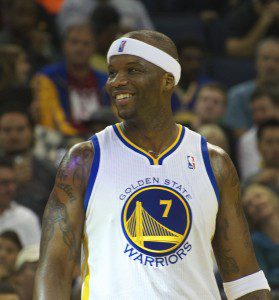 I am loving Al Mohler and Michael Horton chopping up the significance of Good Friday. These two guys think and speak clearly. Michael Horton has written very helpfully about modern Christianity and its shortcomings (start with The Gospel-Driven Life).
I am loving Al Mohler and Michael Horton chopping up the significance of Good Friday. These two guys think and speak clearly. Michael Horton has written very helpfully about modern Christianity and its shortcomings (start with The Gospel-Driven Life).
I also enjoyed Josh Harris’s program on his new book Dug Down Deep (Multnomah, 2010). Of course, many callers wanted to talk about I Kissed Dating Goodbye (Multnomah, 1997).
Running down this rabbit trail, I wonder how many questions Harris has answered about that book over the years? Seriously, how many books have their own Wikipedia page? Wow. I remember finding this book and Boy Meets Girl (Multnomah, 2000) formative in figuring out the confused mess that is young (would-be) romance.
***********
Came across this quotation in D. Michael Lindsay’s Faith in the Halls of Power (Oxford, 2007), an absolute must-read for those interested in how evangelicals have penetrated the culture (and indeed we have).
Here’s Lindsay, a sociologist, on evangelical celebrity culture. He found that
Ministry leaders resemble corporate executives, calling themselves “chairman and chief executive officer” rather than “pastor” or “chaplain.” Indeed, American evangelicalism contributes to a cult of personality with movement leaders elevated to iconic status, despite biblical injunctions for modesty and humility.
Lindsay then relates a story that illustrates the problems inherent in this culture:
I once sat backstage at a large meeting for evangelicals, where the various entourages–and their sycophantic behavior–seemed more appropriate for a rock concert or political rally than a meeting of church people. The evangelical publishing world and contemporary Christian music have fed this hero worship, with armies of publicist and personal assistants surrounding a select few leaders whose names garner media attention. Personality-driven book sales have catapulted evangelical leaders into the cultural mainstream even though industry insiders say some have not even written the books themselves, relying instead on ghostwriters. Indeed, the very existence of such a things as a “Christian celebrity” shows how evangelicals have adopted the practices of secular society. (130)
There’s a lot to chew on here and in the book as a whole. Though many of us deeply appreciate so many prominent leaders and have benefited hugely from their ministries, we need to remember these words. I’m reminded of the need not to cast aspersions, on the one hand, or to slip into the celebrity worship common to secular culture on the other.
We need mentors, role models, and examples. These are biblical things. We need to show “double honor ” to godly elders and mentors (1 Timothy 5:17). We have profited deeply from leaders whom God in His grace has raised up to provide guidance and movement shepherding. And yet people like me need to remember that we should not follow men, but a Man; that our role models are deeply flawed, just as we are; and that if we are too closely identified with one person, we’re in danger of idolizing them.
Seems like one antidote that we can use against the instinct to promote Christian celebrity culture is to engage a wide variety of voices. We may well find some teachers more helpful than others, but learning from a wide range of commentators can help us, it seems to me, avoid idolizing mere men.
And this isn’t always possible, but it also seems helpful to go outside of one’s core movement or group to get training and/or education. That often broadens us, makes us more charitable, and helps us to see that God has spread His gifts over all the church, even those with whom we disagree on some points.
With all this said, it’s helpful, I think, to read that Lindsay quotation and let it wash over you.











